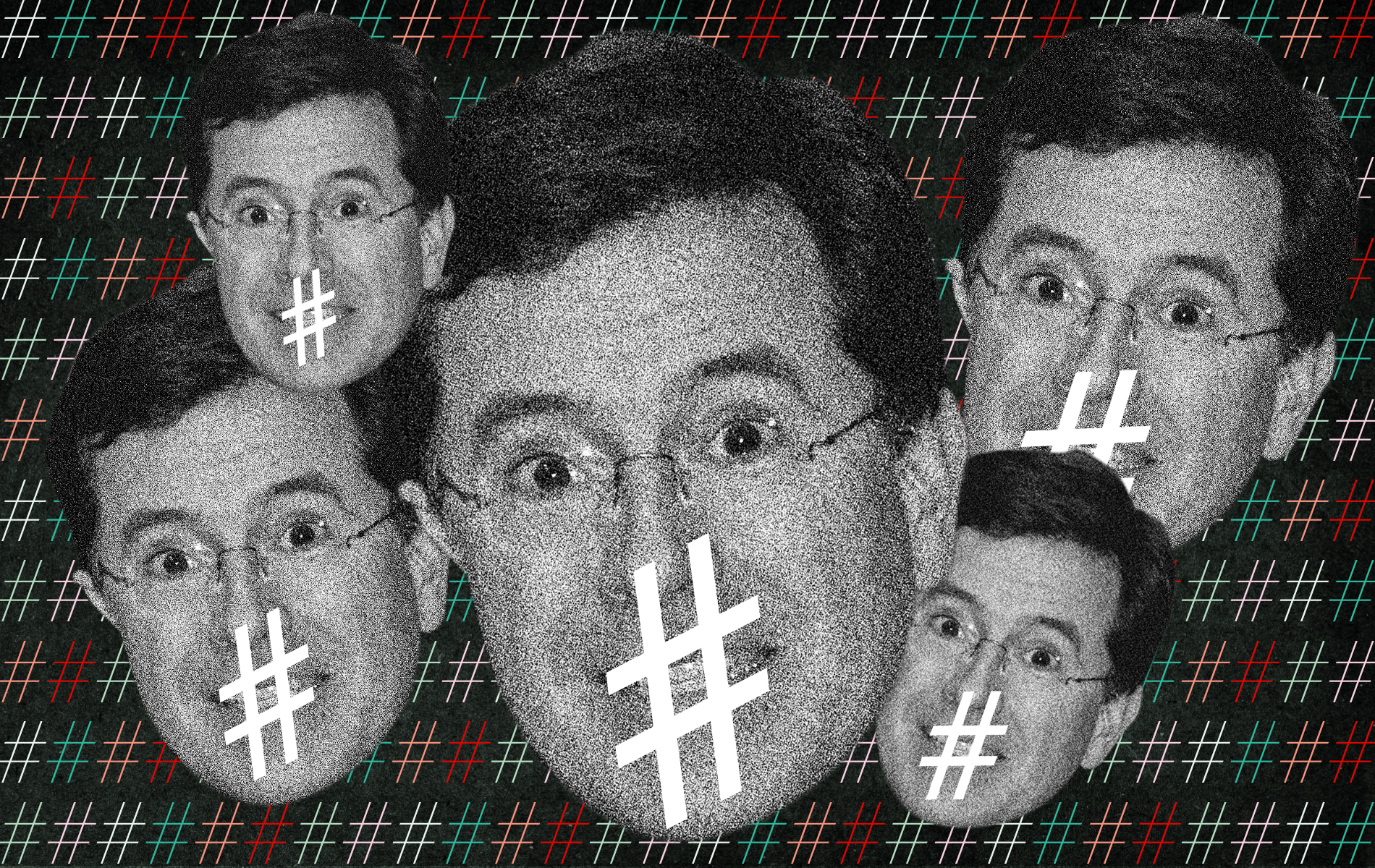When a satirist stretches his limits, it’s his critics who catch the heat.
by Kaitlyn Collier
A few days ago, my friend, writer, educator and student Eunsong Kim, cowrote the piece We Want to #CancelColbert with writer and activist, Suey Park. Their opinion piece calls out a racist joke made at the expense of Asian Americans on the March 26th episode of the Colbert Report. The joke was later posted, without some context, on the show’s Twitter account (and quickly deleted). I watch the Colbert Report, but rarely, so I immediately found and watched the episode.
As a woman who has watched countless racist and chauvinist jokes play out in mainstream media with very little response (negative or otherwise) from those in charge, I didn’t find it to be extremely offensive right away. I did sense that the joke might be taking some pleasure in its imitation of a stereotypical Asian man, and not simply making a satirical comparison to Dan Snyder’s Washington Redskins Original Americans Foundation, which is in fact real.
I did, right away, find the backlash against Suey Park and Eunsong Kim, which has been violent and racist, to be horrific. Park has received death threats and has had her personal information stolen and posted online. Unfortunately, these kinds of threats aren’t entirely new. Earlier this year, Amanda Hess wrote Why Women Aren’t Welcome on the Internet in which she describes being threatened with rape and murder online in response to her writing.
The news media is predictably biased against women. In many articles, Kim and Park’s words have been simplified or taken out of context. Julia Carrie Wong for The Nation and Kenzo Shibata for The Huffington Post have both carefully detailed the racist and sexist blowback which has been hurled toward #CancelColbert and its authors by a diverse group of media outlets and internet users. If Suey Park were not the face of this story, it’s easy to imagine that it would have been treated with less skepticism and most certainly with less violence. If Park were older, whiter, more male, and more “reasoned,” she wouldn’t be receiving this backlash—in fact, #CancelColbert might have remained in the margins, out of sight from a mainstream white liberal gaze in general. It’s precisely because of Park’s youth, race, and gender that this has become a prolonged story, in which she is almost consistently painted the villain—or the fool.
What I’ve learned from #CancelColbert is that the primary role of the mainstream media is to protect white privilege. It’s okay to make racist jokes, because (insert whatever reason) _________. In this case, because it’s pointing out the absurdity of Dan Snyder’s pathetic suggestion of recompense to Native Americans. Another option may be that if Park and other Asian Americans find the joke to be racist, then perhaps both things are true. Snyder and liberal comedy both benefit from white male privilege, which, in part, is the ability and freedom to speak openly.
Kaitlyn Collier is an artist and writer living in Minneapolis. You can see more of her work and follow her on Tumblr or Twitter.




